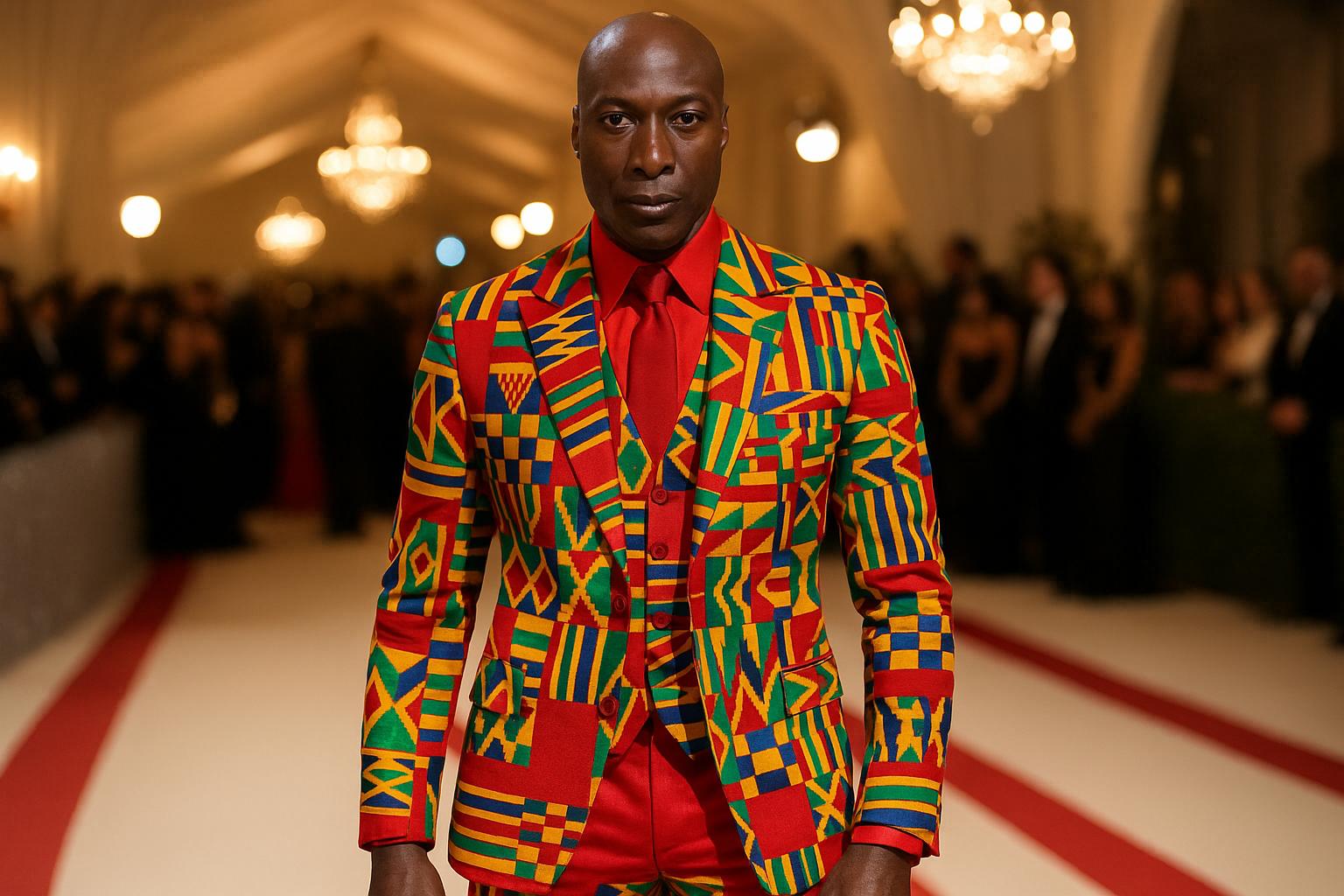Ozwald Boateng, a luminary in British fashion, recently made waves at the Met Gala, marking a significant milestone as he celebrated four decades in design. Known for his innovative approach to menswear, the esteemed British-Ghanaian designer dressed several high-profile celebrities, including African icons Tems, Burna Boy, and Arya Starr, as well as actors Ncuti Gatwa and Jaden Smith. This year's gala—held in New York—embraced the theme "Superfine: Tailoring Black Style," an area Boateng described as "completely in my wheelhouse." The theme resonated deeply with his efforts to explore how fashion shapes black identities and culture.
For Boateng, the Met Gala was not just another event; it was an opportunity to recalibrate the narratives surrounding black culture in fashion. Reflecting on the significance of African influence, he remarked, "How can you do that without Africa?" His designs, characterised by bold colours and West African-inspired patterns, draw heavily from his Ghanaian roots. Notably, Boateng reinterpreted iconic kente cloth, integrating it into his signature "tribal" patterns that have become synonymous with his eponymous brand.
The Met Gala presented its own challenges; Boateng had to revamp Burna Boy's outfit less than 24 hours before the event. Burna Boy's ensemble—a striking red suit paired with a buttercup yellow shirt and an eel-skin cape—was inspired by his heritage as a "waterside pikin" from the Niger Delta, representing the deep cultural significance of watercraft in his community. After the fitting, the excitement in the room was palpable, showcasing Boateng’s ability to blend urgency with style.
Throughout his illustrious career, Boateng has defied conventions in menswear tailoring. When he opened his first shop on Savile Row in 1995, he became the first black designer to do so, breathing new life into a space that had seen decline. "When I first started as a designer, Savile as a street was a dying street... I effectively moved there in the early 90s and breathed new life into it," he reminisced.
His journey in fashion has been marked by both triumphs and setbacks. Following a period of acclaim, he faced bankruptcy due to an economic downturn that severely impacted his business. In a harrowing twist, an entire collection was stolen from him and his marriage fell apart within the same year. Nevertheless, Boateng demonstrated resilience, overcoming these adversities to re-establish his brand and expand his creative horizons.
In recent years, Boateng has ventured beyond menswear, taking on roles such as the creative director for Givenchy's menswear and designing uniforms for British Airways, alongside a new focus on womenswear. His legacy continues to grow, now entwined with the next generation; his children, Oscar and Emilia, accompanied him to the Met Gala, although they seem hesitant to follow in their father’s fashionable footsteps. “I'm trying to slowly but surely seduce them into the fashion business,” he joked, highlighting the importance of passion over obligation.
Looking ahead, Boateng is eager to expand his influence further. "The future is expansion," he stated, envisioning a comprehensive strategy to raise capital and push his brand globally. As he reflects on his journey thus far, one thing remains evident: Ozwald Boateng is not only a designer; he is a pivotal figure in redefining the narrative of African and black sartorial elegance in a global context.
Reference Map
- Paragraph 1: (1), (2)
- Paragraph 2: (1), (2)
- Paragraph 3: (1)
- Paragraph 4: (1)
- Paragraph 5: (1)
- Paragraph 6: (1)
- Paragraph 7: (1), (2)
Source: Noah Wire Services
